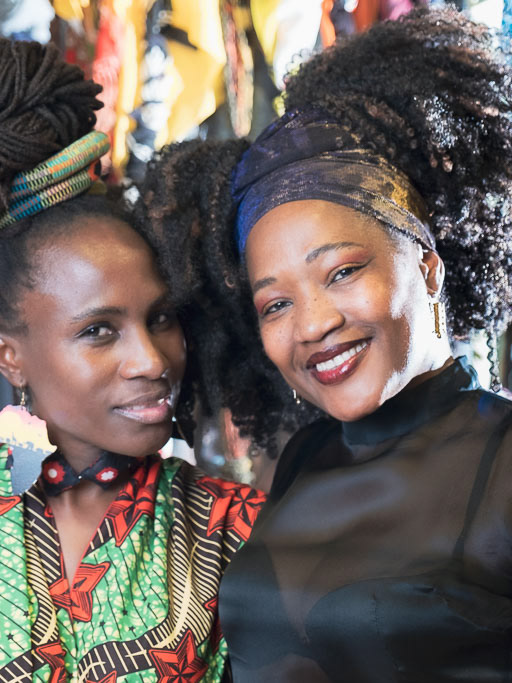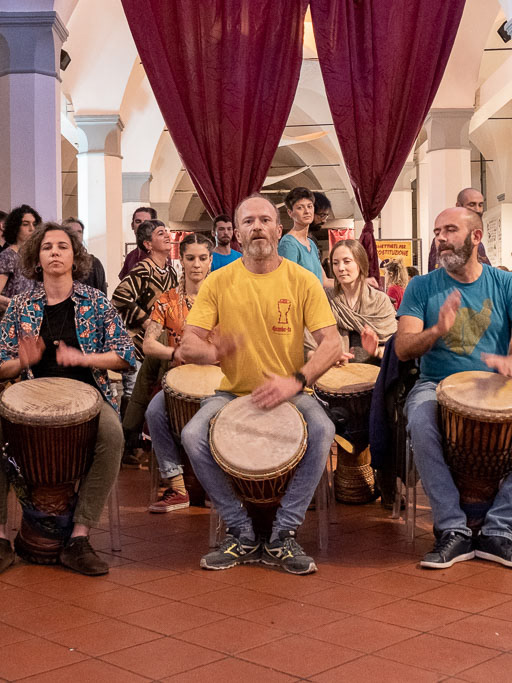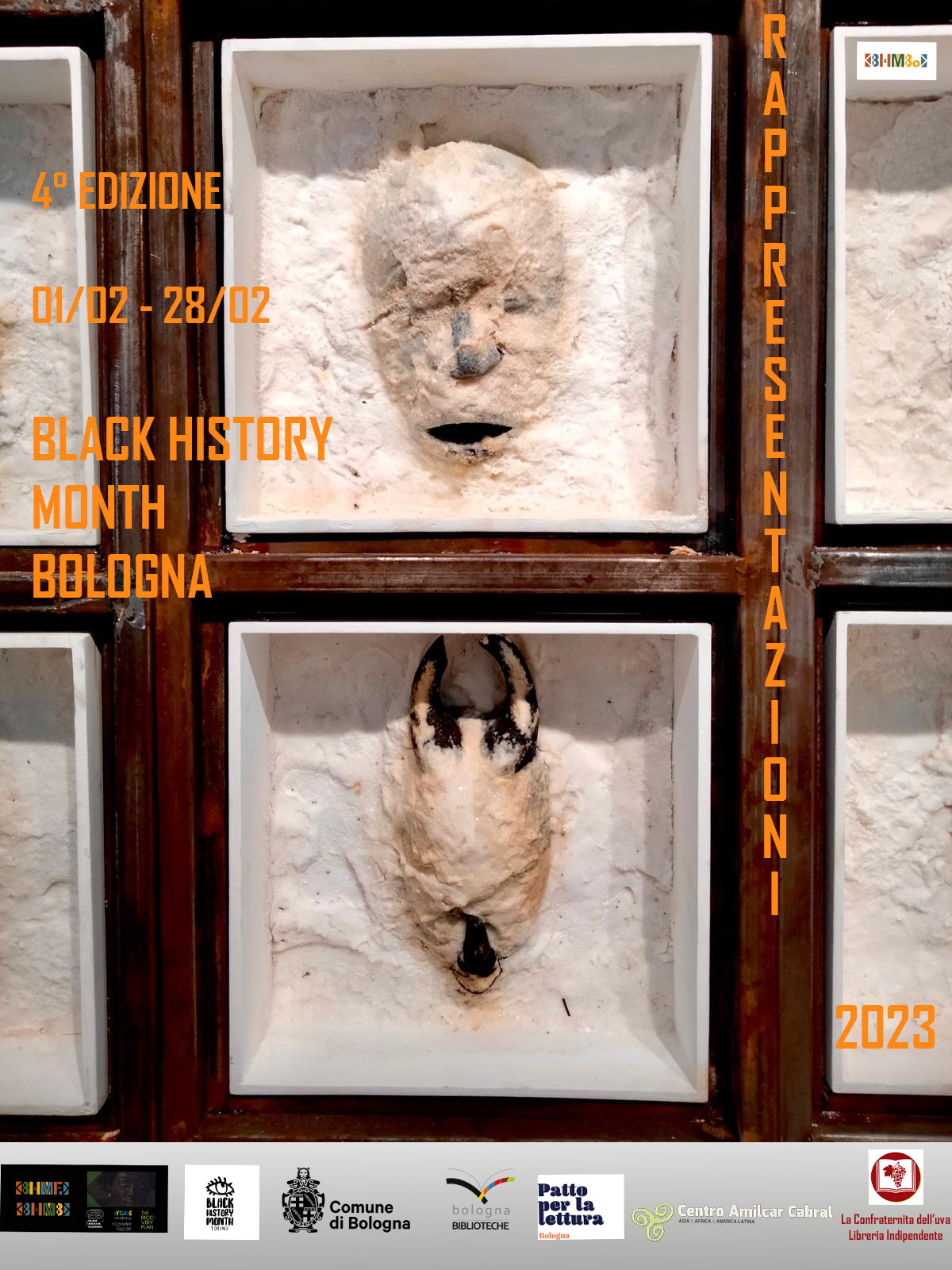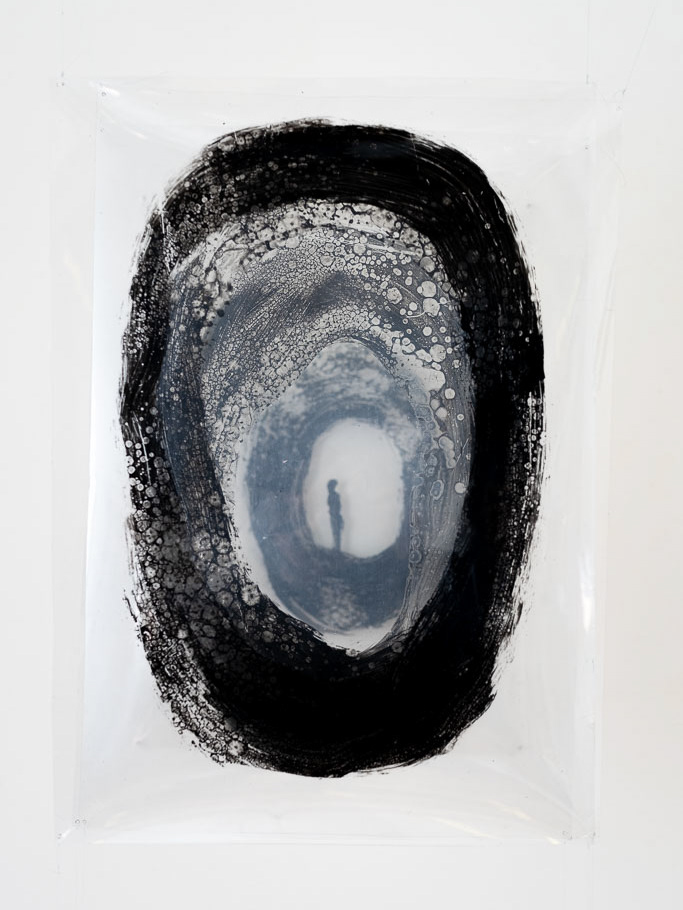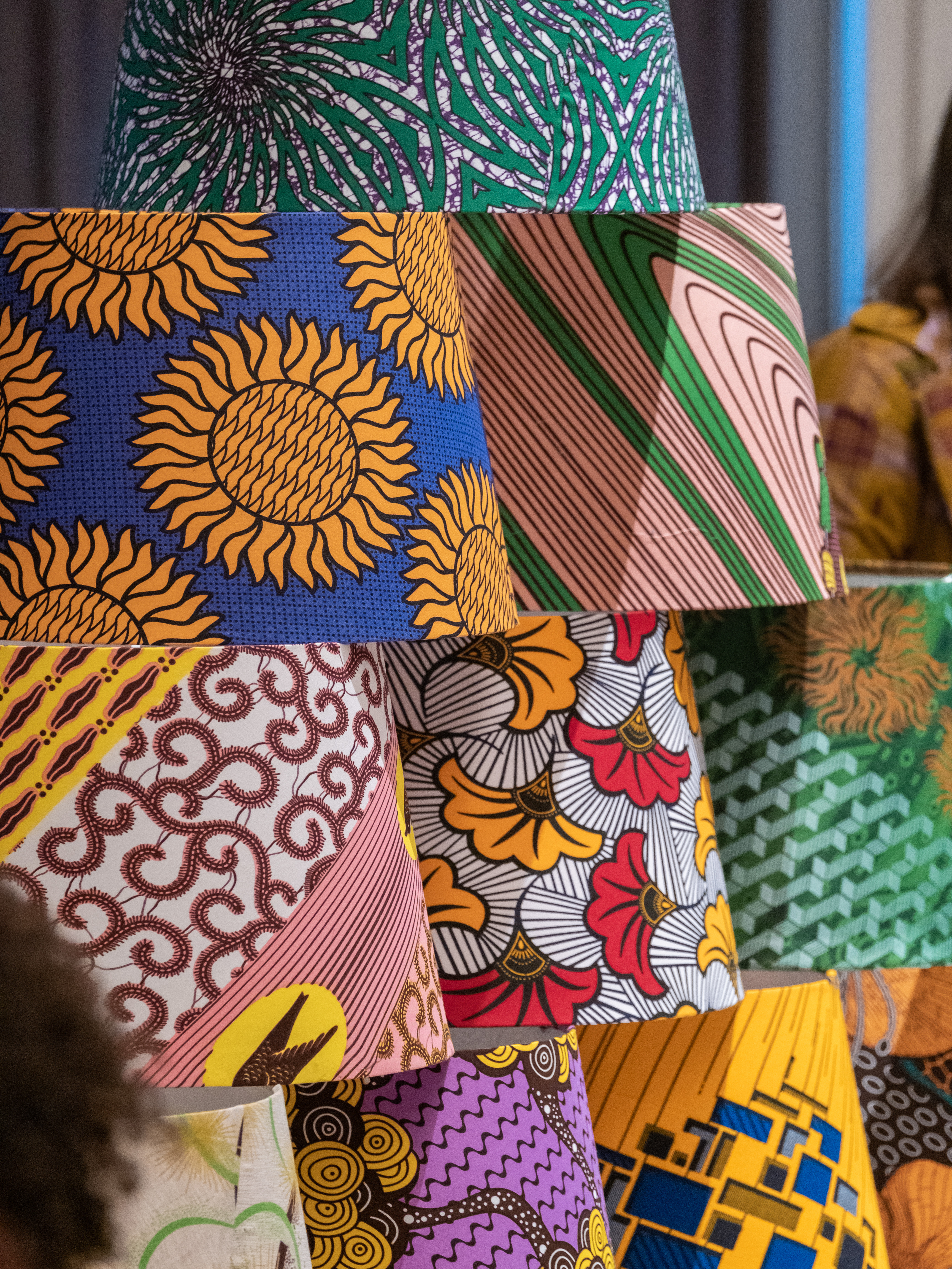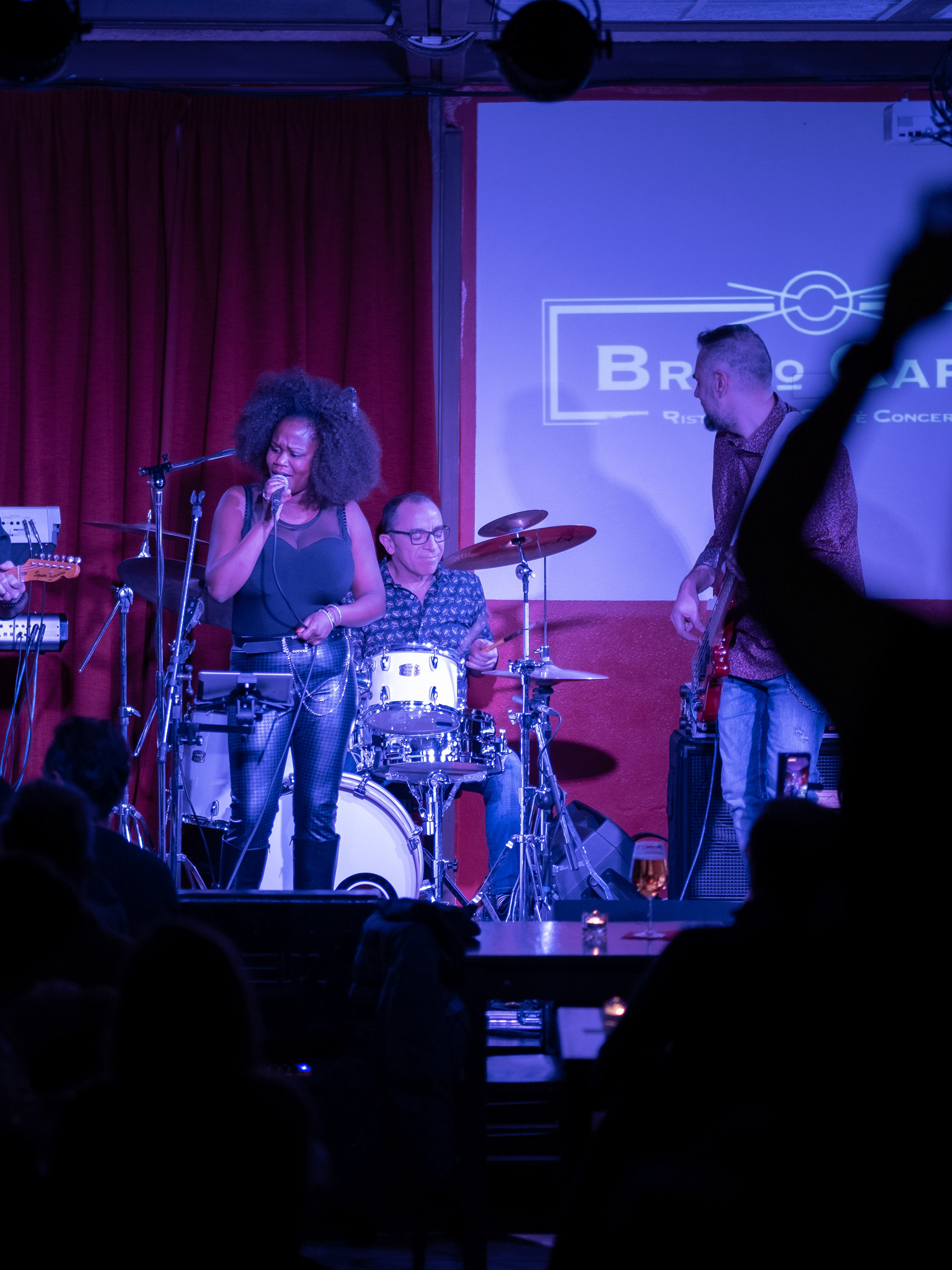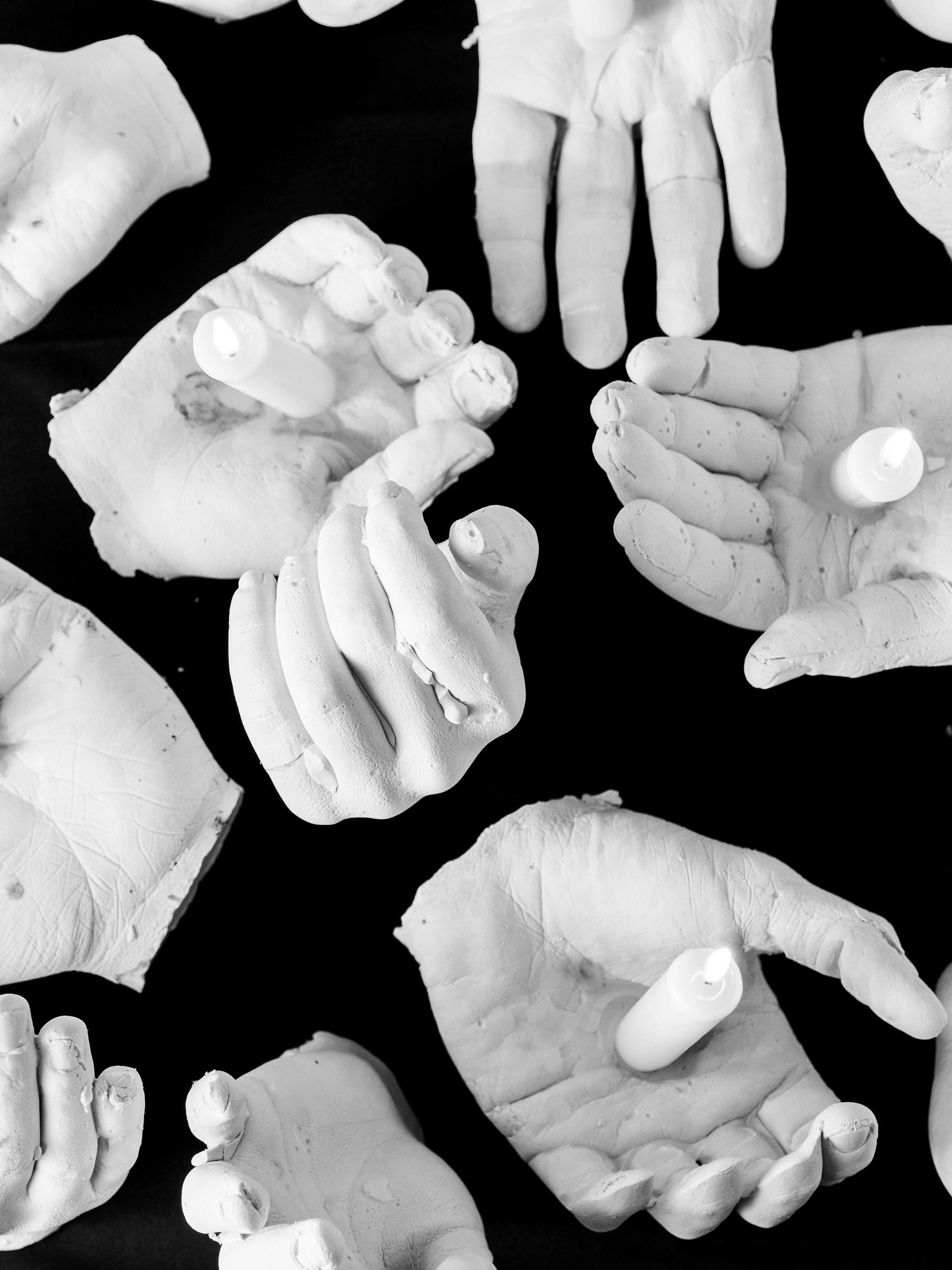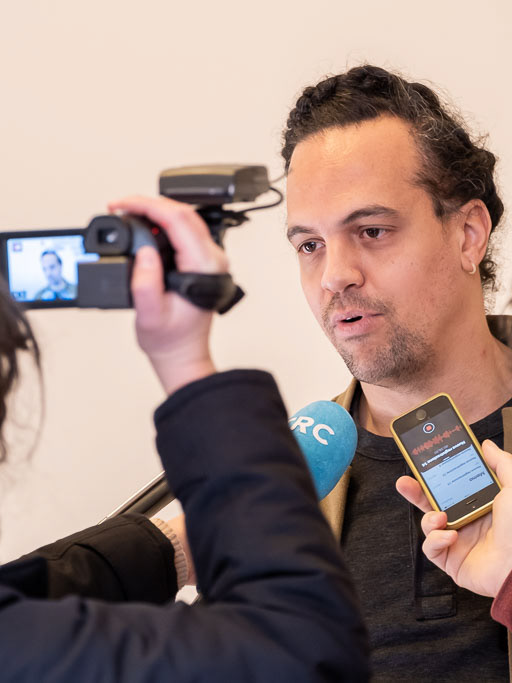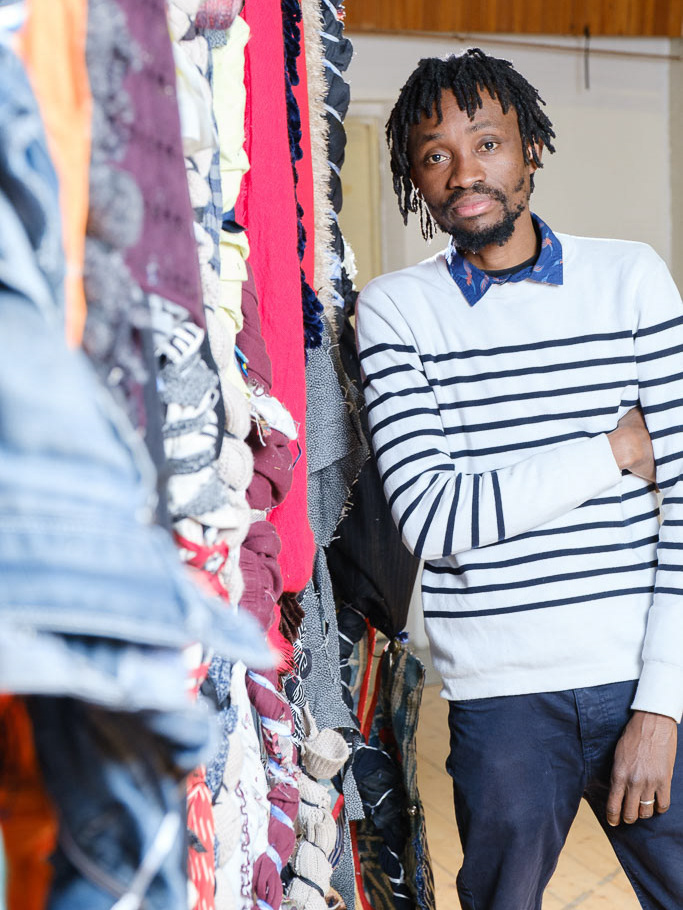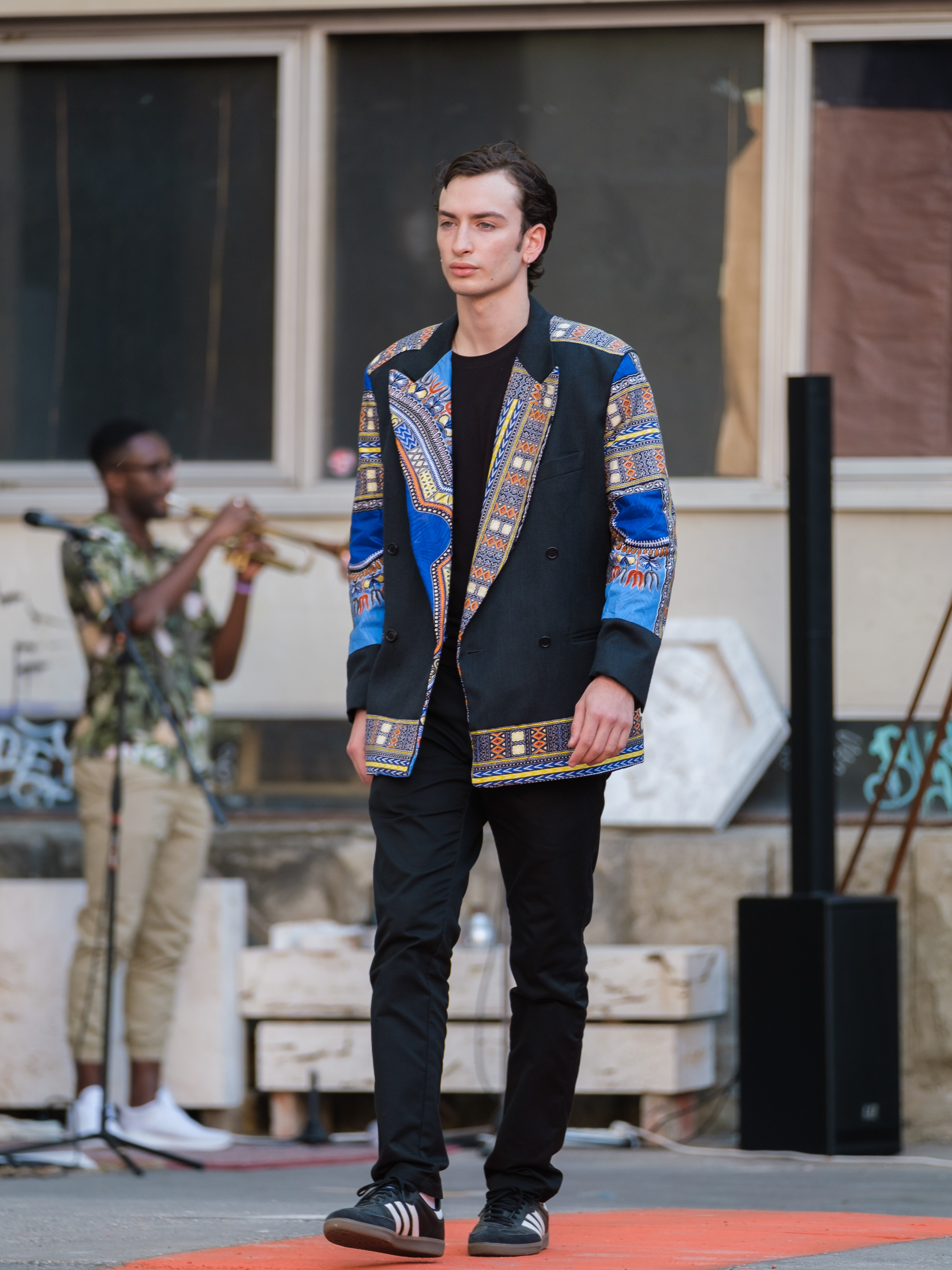Mandinga - FX Rougeot
--ita--
Il 13 febbraio scorso inauguravamo la mostra fotografica “Mandinga” di François-Xavier Rougeot presso la Mediateca di San Lazzaro di Savena nell’ambito dell’iniziativa Black History Month, con il tema guida “Obbligato”.
Nel tentativo di costituire una memoria viva e sempre più attuale del panorama culturale Afrodiscendente, ci pare fondamentale tener conto di altri sguardi, altre percezioni che a volte possono essere estranee a quei popoli su alcuni aspetti in cui essi vengono coinvolti dando cosi la possibilità al pubblico di avere una griglia di lettura più ampia sulla loro storia, offrendo anche la possibilità di percepirne le specificità. E in tale contesto che abbiamo accolto il contributo di FX Rougeot con entusiasmo. Oggi possiamo parlare di antropologia con vanto però, spesso, ci sfugge un particolare, cosa sarebbe questa scienza senza le esperienze che ci hanno preceduto? E tutte le scienze senza eccezione dovrebbero essere tributarie di tale riflessione. Questo progetto si inserisce in quanto contributo nel processo di restituzione che in questo caso è restituzione della memoria ancestrale(riti, tradizioni) dei popoli “Mandingues”, attraverso quegli scatti straordinari che ci consentono di tuffarsi insieme al fotografo in quello che fu questo carnevale ma anche a scavare nella storia di quei popoli ormai disseminati sul globo, con tutte le conseguenze che comporta questa disseminazione compreso anche il mutamento di quelle usanze nel tempo e nello spazio al contatto con svariate realtà quotidiane figlie dei nostri tempi.
Introduzione a cura di Patrick Joel Tatcheda Yonkeu
FX Rougeot - PH. Lorenzo Piano
Mandinga - FX Rougeot
--eng--
On February 13th we inaugurated the photographic exhibition "Mandinga" by François-Xavier Rougeot at the Mediateca di San Lazzaro di Savena as part of the Black History Month Bologna initiative, with its first edition in Bologna, carrying the guiding theme "Obbligato".
In an attempt to constitute a living and more and more current memory of the Afro-descendant cultural panorama, it seems fundamental for us to take into account other visions, other perceptions at times foreign to themselves in some regards in, thus giving the public the possibility to have a wider reading grid on their history, while offering the possibility of identifying their specificities. It is in this context that we welcomed FX Rougeot's contribution with enthusiasm. Today we can talk about anthropology with esteem, but we often miss one detail, what would this science be without the experiences that preceded it? And all sciences, without exception, should be a tributary of this reflection. This project is part of the process of restitution that in this case is the restitution of the ancestral memory (rites, traditions) of the "Mandingues" peoples, through those extraordinary photographs that allow us to dive together with the photographer into carnival but also to dig into the history of those peoples now scattered across the globe, with all the consequences that this dissemination involves including the change in customs in time and space in contact with various daily realities, daughters of our times.
In an attempt to constitute a living and more and more current memory of the Afro-descendant cultural panorama, it seems fundamental for us to take into account other visions, other perceptions at times foreign to themselves in some regards in, thus giving the public the possibility to have a wider reading grid on their history, while offering the possibility of identifying their specificities. It is in this context that we welcomed FX Rougeot's contribution with enthusiasm. Today we can talk about anthropology with esteem, but we often miss one detail, what would this science be without the experiences that preceded it? And all sciences, without exception, should be a tributary of this reflection. This project is part of the process of restitution that in this case is the restitution of the ancestral memory (rites, traditions) of the "Mandingues" peoples, through those extraordinary photographs that allow us to dive together with the photographer into carnival but also to dig into the history of those peoples now scattered across the globe, with all the consequences that this dissemination involves including the change in customs in time and space in contact with various daily realities, daughters of our times.
Introduzione a cura di Patrick Joel Tatcheda Yonkeu, traduzione in inglese a cura di Justin Thomson
«FACCE», di Fx Rougeot
Mindelo, São Vicente, Capo Verde, febbraio - marzo 2017
Durante il mio primo viaggio a São Vicente, nel 2014, sono stato subito colpito dall'intensità del «Mandinga *», le sfilate che, dalla prima domenica dell'anno fino a quella che chiude il carnevale di Mindelo, animano le strade della città con un'energia così speciale.
Nel febbraio 2017, quando ho avuto la fortuna di visitare nuovamente la mia famiglia capoverdiana a Mindelo, il mio obiettivo era quello di fare un report fotografico sui preparativi del carnevale (con i sarti, gli artigiani che realizzano i costumi o progettano i carri da parata, ecc.) e sulle numerose sfilate. Per catturare l'entusiasmo, la tensione, la gioia e la vitalità crescente attorno a questo grande evento che riunisce bambini, adulti, donne e uomini di Mindelo e oltre.
Il «Mandinga» era da sempre ovviamente nella mia mente. Ho avuto l'opportunità di prendere parte a due di loro, due domeniche di fila. Compreso l'ultimo Mandinga, quello che si svolge la domenica dopo la grande sfilata e che segna la fine delle celebrazioni, con un'inondazione di persone che ballano attraverso la città al ritmo dei batuqueiros, delle canzoni e dei fischi, prima di finire con l'oceano, come vuole la tradizione. Ho cercato di fondermi totalmente con questo momento.
Ho cercato di avvicinarmi il più possibile alle facce e ai corpi ricoperti di olio e polvere di grafite. Di fronte all'obiettivo della fotocamera, il tratto «Mandingas» posa per le immagini, come fanno per spaventare i passanti: sporgere la lingua, brandire le loro lance o gridare «Ariaaaaaaaah !!! ».
« FACES », by Fx Rougeot
Mindelo, São Vicente, Cape Verde, February - March 2017
During my first trip in São Vicente, in 2014, I had been instantly stricken by the intensity of the « Mandinga* », the parades that, from the first Sunday of the year until the one closing the Mindelo carnival, liven up the city streets with such a special energy.
On February 2017, as I was lucky enough go and visit my Cape Verdean family again in Mindelo, my objective was to do photo reports about the carnival preparations (with the dressmakers, the craftspersons making the costumes or designing the parade floats, etc.) and about the many parades. To capture the enthusiasm, the tension, the joy, and the growing vibrancy around this major event that brings together children, adults, women and men from Mindelo and beyond.
The « Mandinga » was of course in the back of my mind. I had the opportunity to take part in two of them, two Sundays in a row. Including the last Mandinga, the one taking place on the Sunday after the great parade and that marks the end of the celebrations, with a flood of people dancing through the city to the rhythm of the batuqueiros, the songs and whistles, before finishing by the ocean, as tradition requires. I have tried to totally blend in with this moment.
Tried to get as close as possible to the faces and bodies covered in oil and graphite powder. In front of the camera lens, the « Mandingas » stroke poses for the pictures, as they do to scare the passersby: sticking out their tongue, brandishing their spears, or shouting « Ariaaaaaaaah !!! ».
* Il termine "Mandinga" si riferisce al popolo Mandinka. Questa tradizione è iniziata negli anni '40 a São Vicente. Ogni domenica, durante il periodo di carnevale, alle 15:00 circa, diversi gruppi, tra cui quello molto famoso di Ribeira Bote, provengono dalle varie aree di Mindelo per sfilare per le strade della città.
Ringrazio in particolare la mamma Auriza, papa Samuel, Claudia, Cibelle, Natty, Ju, Djadjy, Maky, Tchigrão, Jordy, Queila, Carla, James, Marosa, Janine, Yuri, Carla, Ligia e il mini-buzod Erin e Liedson, Fredy, William, Arlinda, Yanina, Nick, Fabricio, João, Hélvio, Ondina, Nany (descrivete la marmellata di alguns psoa!). Grazie per la tua grande gentilezza, la tua meravigliosa accoglienza, i tuoi preziosi consigli, la tua pazienza e i tuoi sorrisi che, oltre a queste immagini, mi hanno offerto un'avventura umana inestimabile. Um espera k k dia dia the chance of partilha ess exposiçao ma bsot ne Mindelo .... É um sonho pe mi!
* The term "Mandinga" refers to the Mandinka people. This tradition started in the 1940's in São Vicente. Every Sunday during the carnival period, at about 3 pm, several groups, including the very famous one from Ribeira Bote, come from the various areas of Mindelo to parade in the streets of the city.
I would like to particularly thank mama Auriza, papa Samuel, Claudia, Cibelle, Natty, Ju, Djadjy, Maky, Tchigrão, Jordy, Queila, Carla, James, Marosa, Janine, Yuri, Carla, Ligia and the mini-buzod Erin and Liedson, Fredy, William, Arlinda, Yanina, Nick, Fabricio, João, Hélvio, Ondina, Nany (desculpa se jam eskce de alguns psoa!). Thank you for your great kindness, your wonderful welcome, your precious pieces of advice, your patience and your smiles that, in addition to these pictures, offered me a priceless human adventure. Um te espera k um dia um t te chance de partilha ess exposiçao ma bsot ne Mindelo.... É um sonho pe mi!
Vernissage " Mandinga"
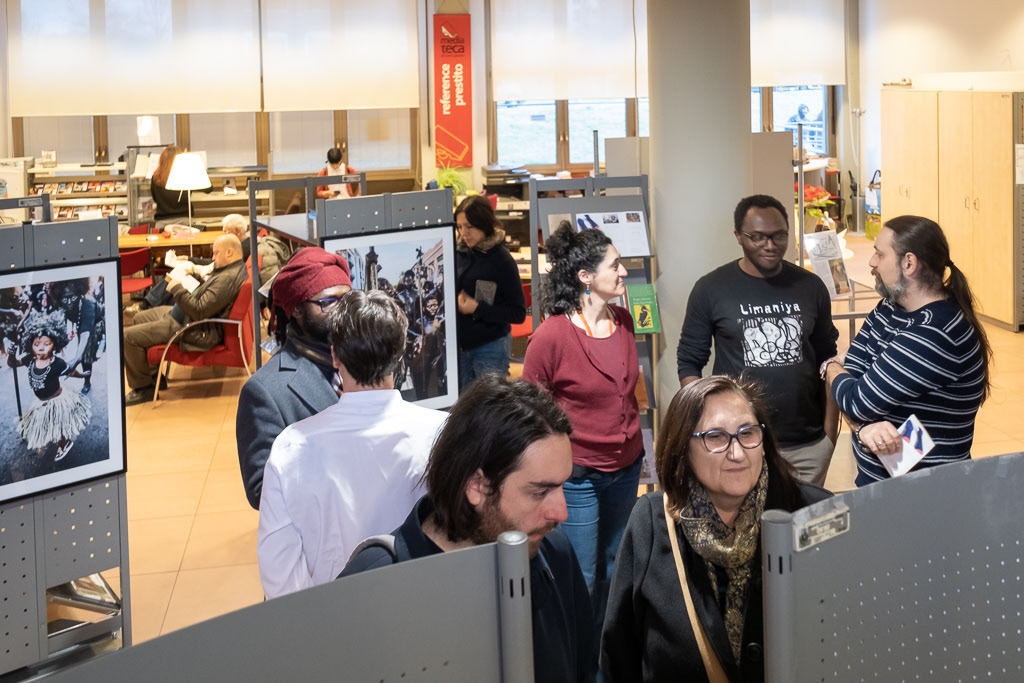
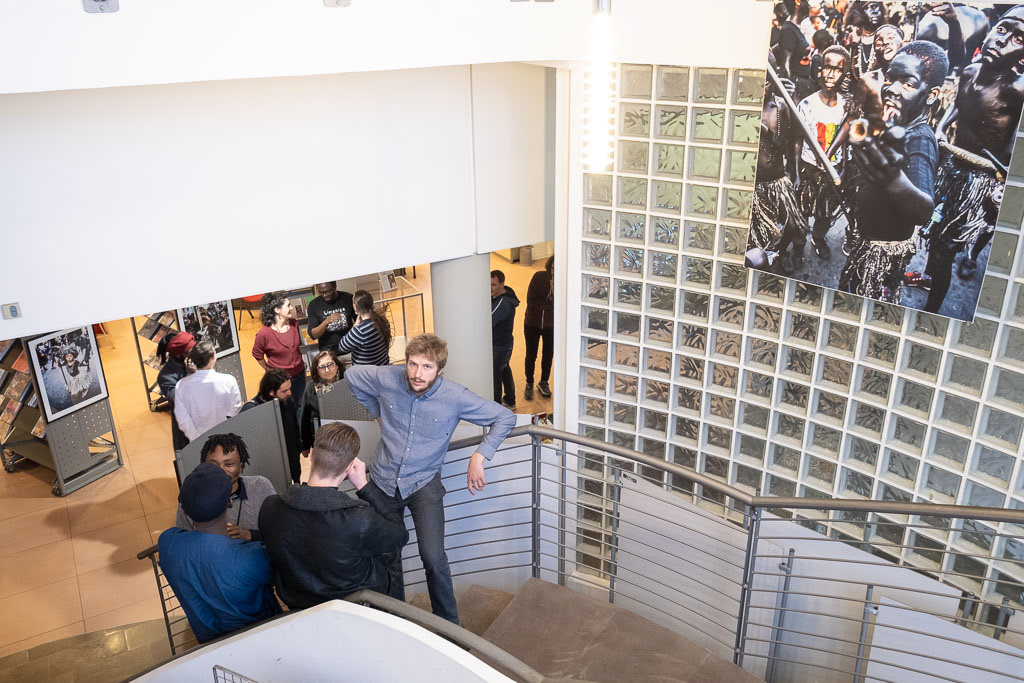
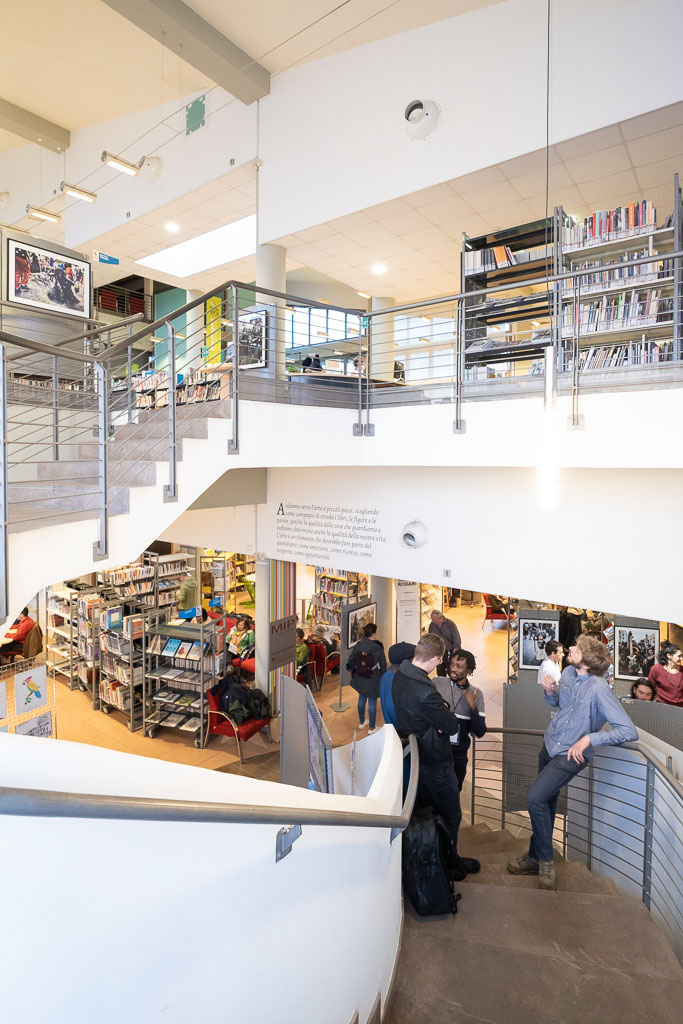
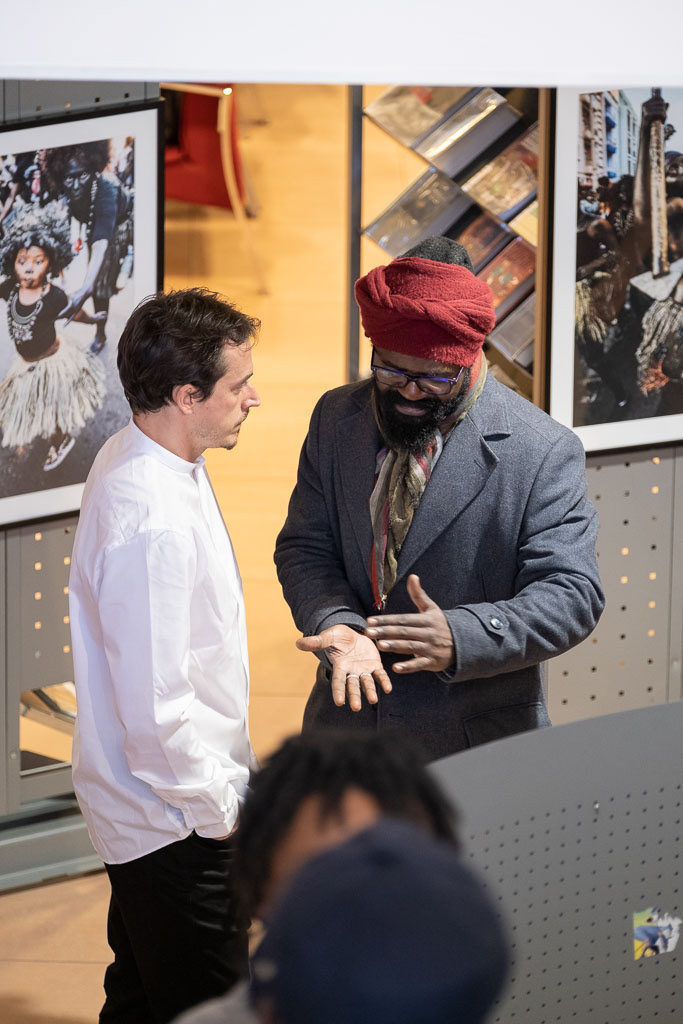
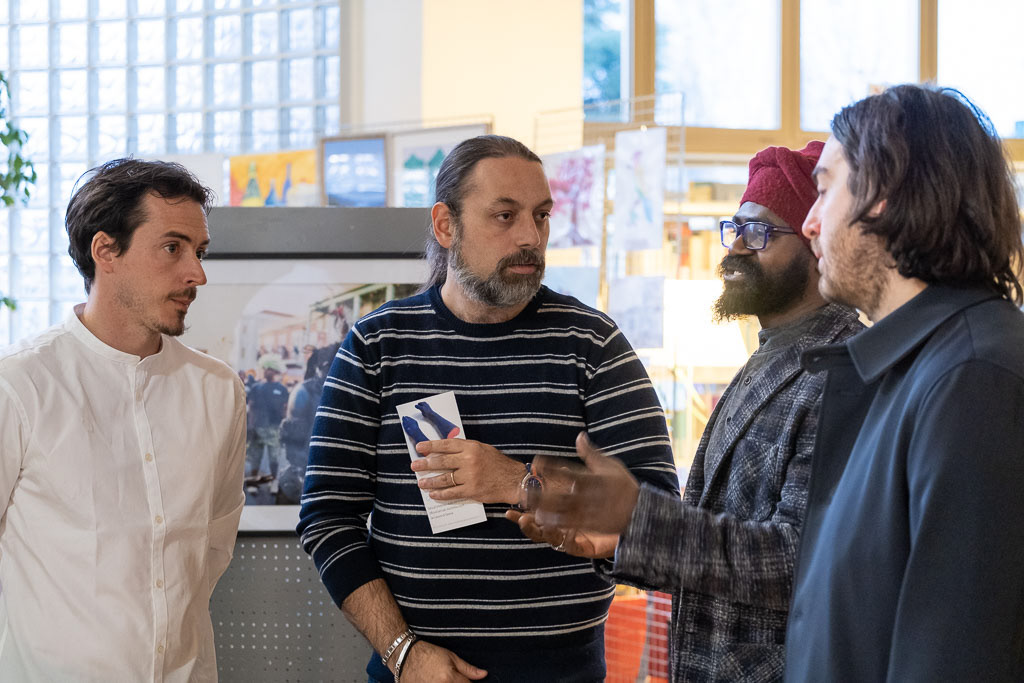
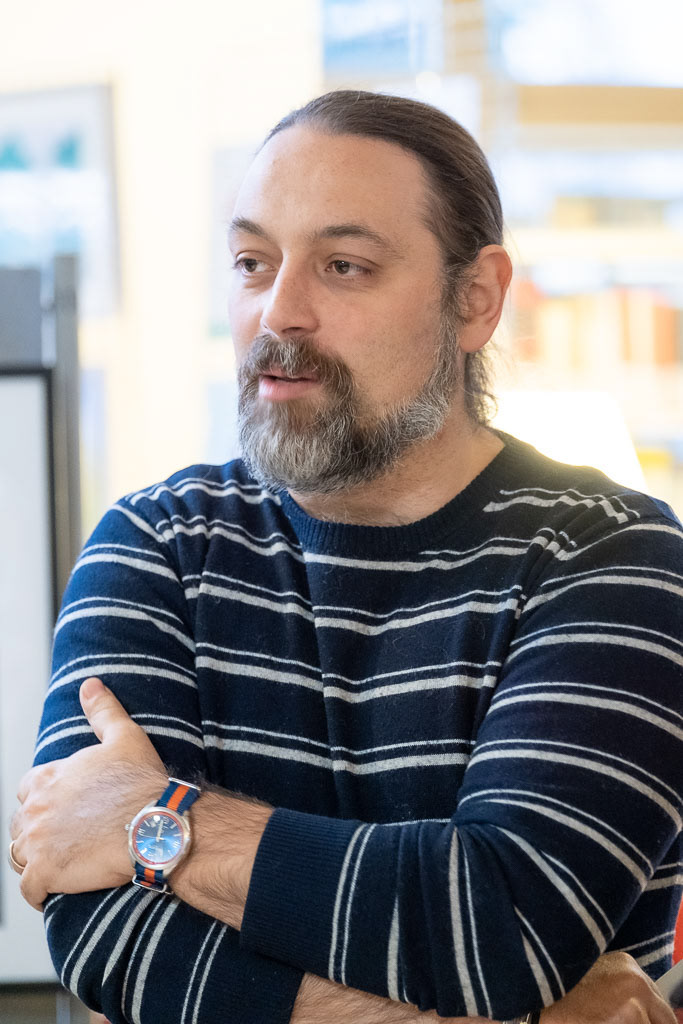
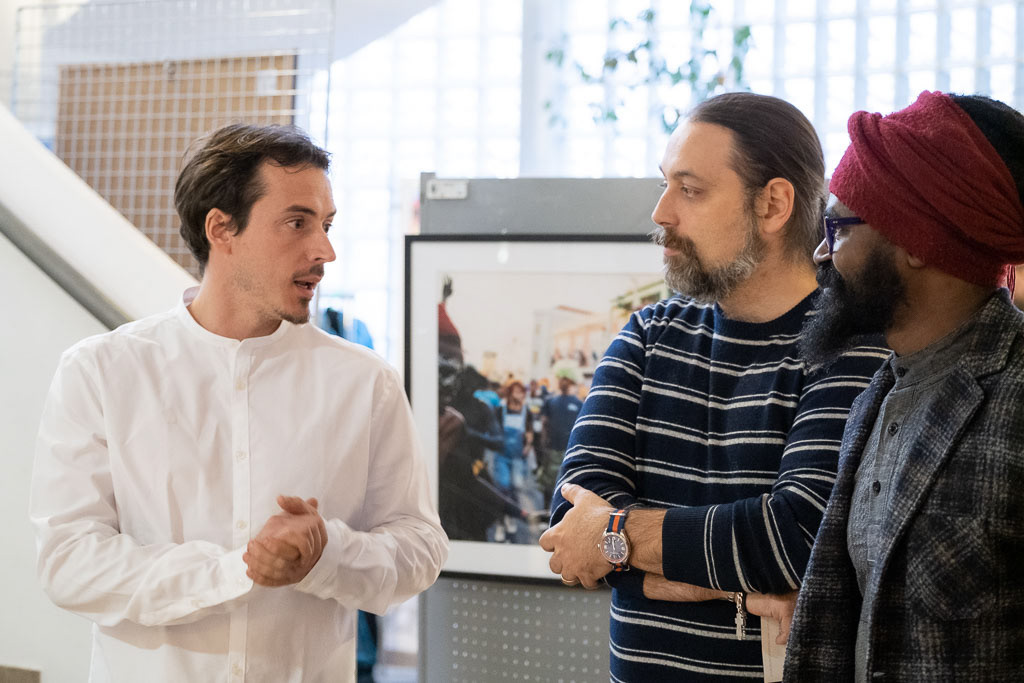
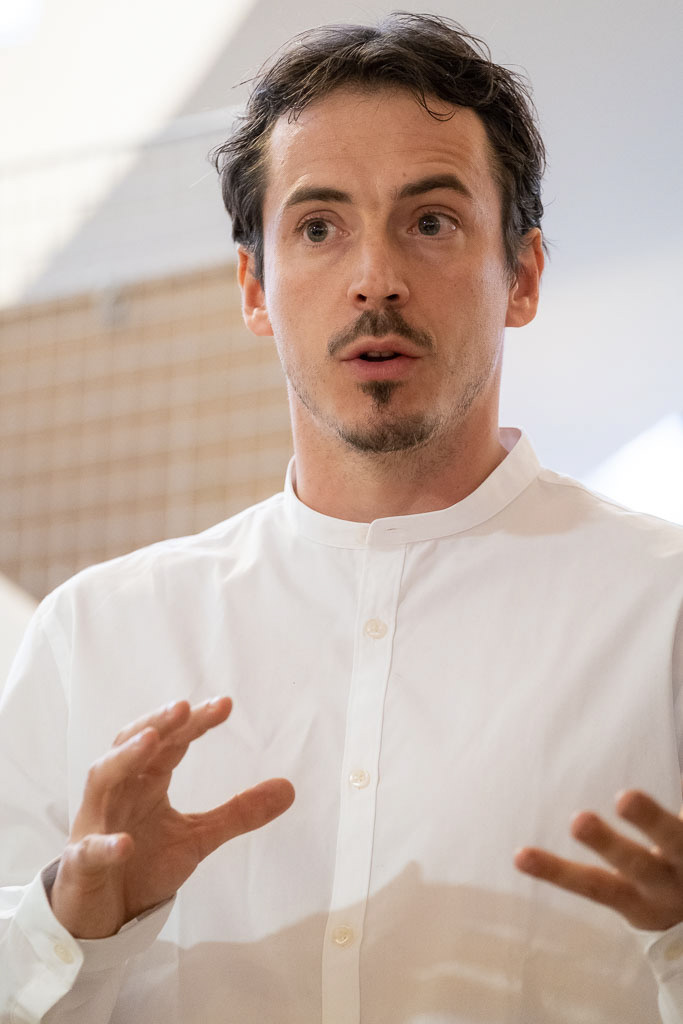
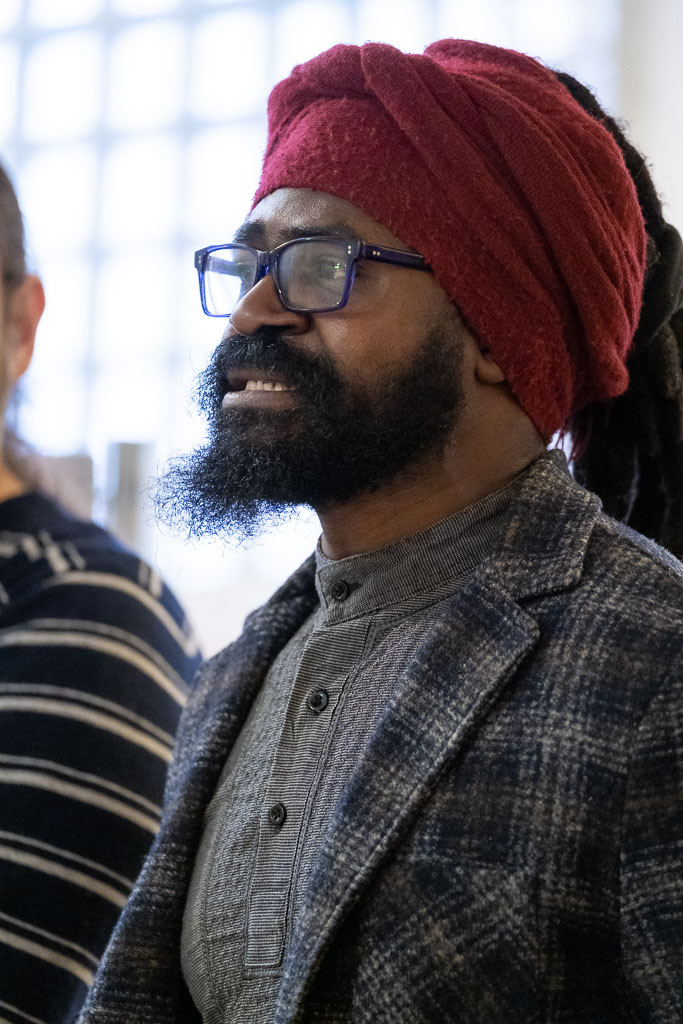
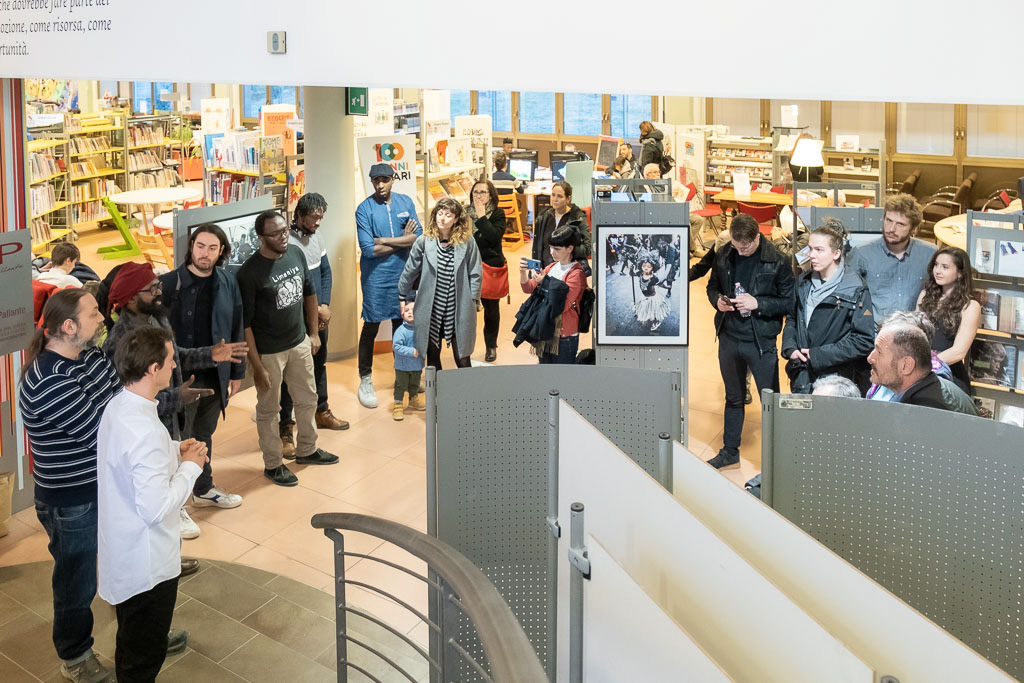
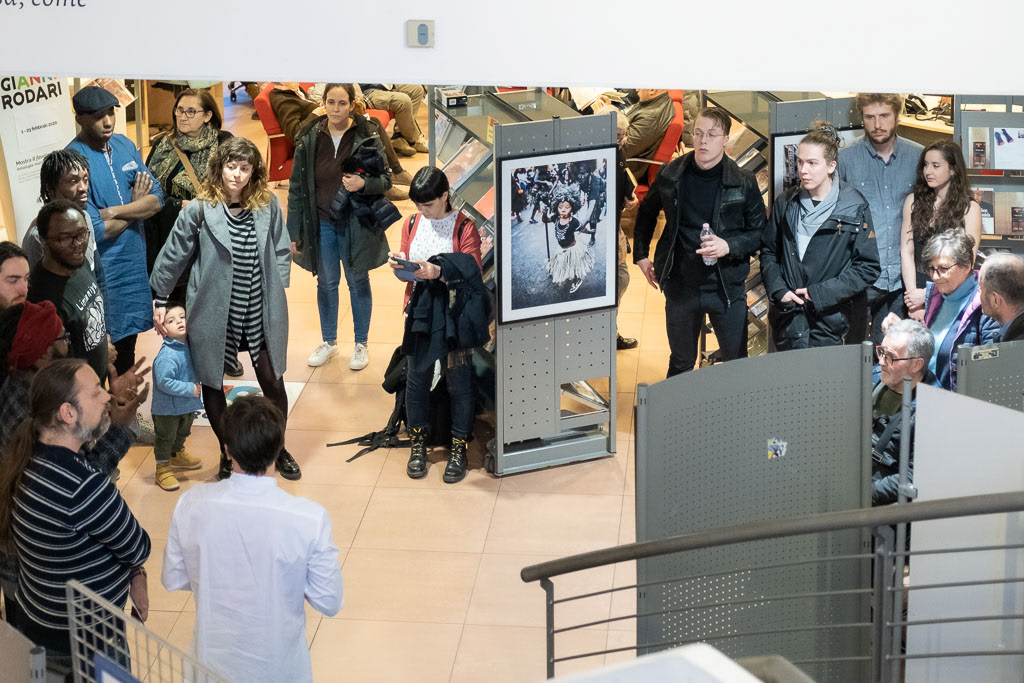
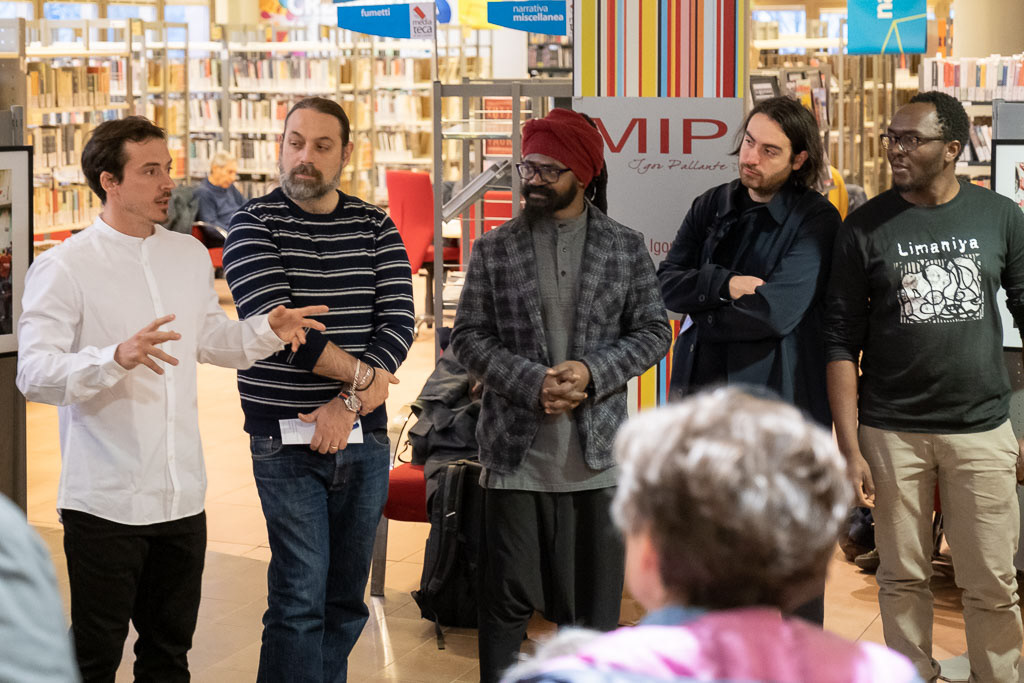
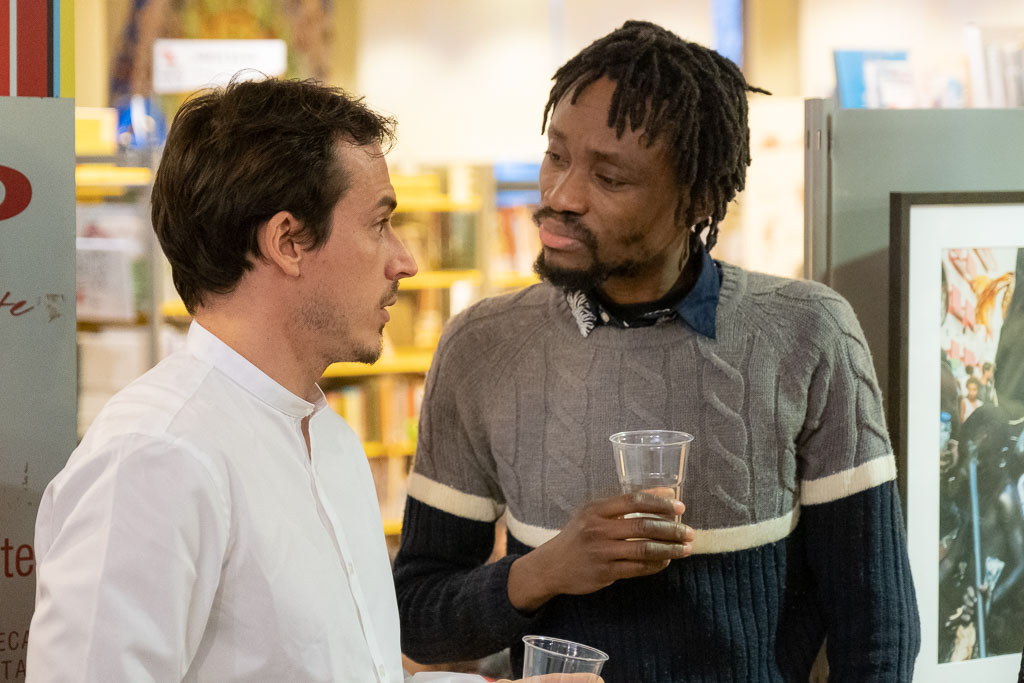
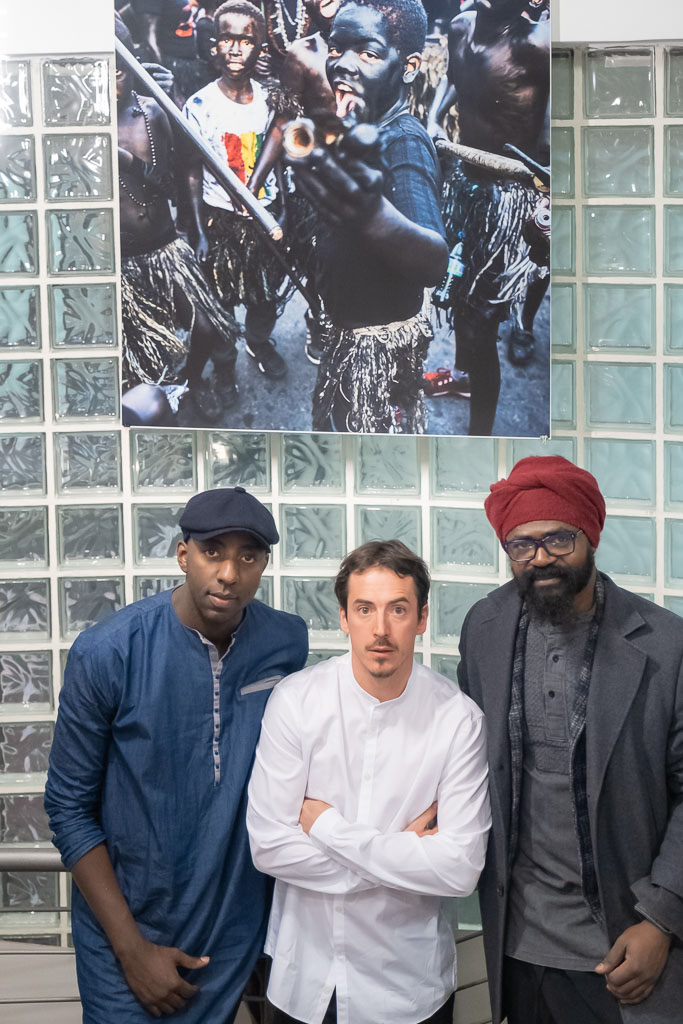
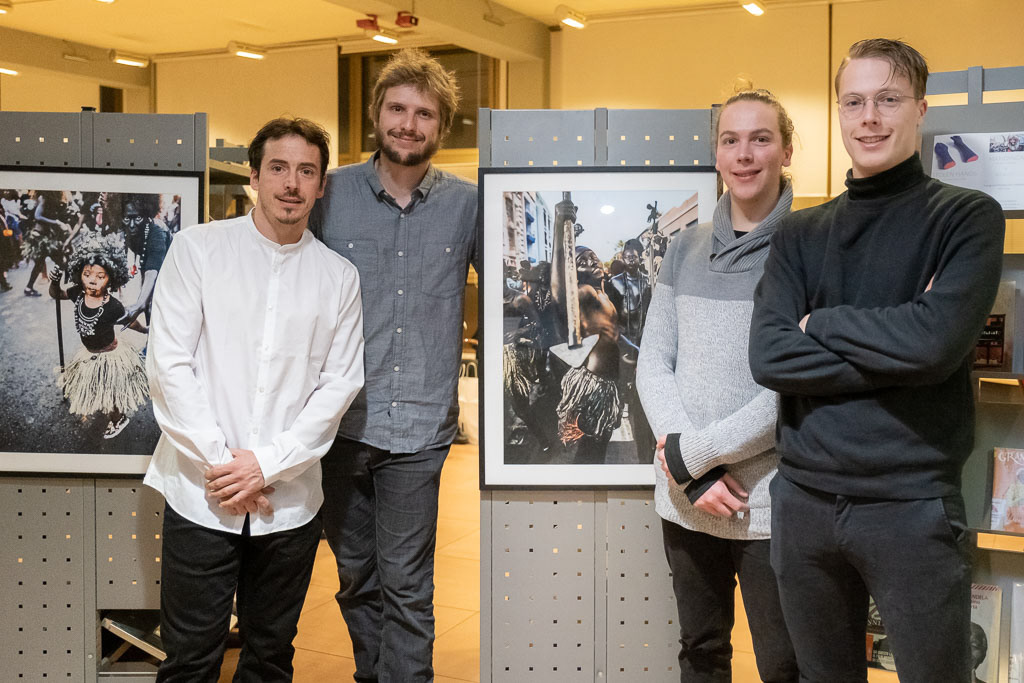
All photos © Lorenzo Piano
